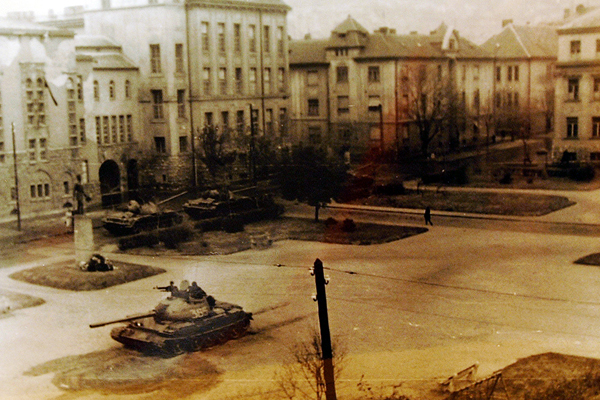„The Fireman calls ‘Huge Fire!’”
Student Disciplinary Procedures related to the Hungarian Revolution of 1956 at the Faculty of Law and the Teacher Training College of Pécs
DOI:
https://doi.org/10.15170/PAAA.2016.03.02.01Keywords:
university history, student history, student revolt, dissidence, University of Pécs, Teacher Training College of Pécs, Hungarian Revolution of 1956Abstract
The retaliations following the Hungarian Revolution of October 1956 reached the institutions of higher education at the end of April 1957. However, in Pécs the first disciplinary procedures had been started almost a month ahead of the central executive order, due to university-college party organizations, as well as the initial difficulties surrounding the Young Communist League. The reason behind this is that both the Hungarian Socialist Workers’ Party and the Hungarian Young Communist League movements found their position rather precarious in the movement, when they were founded in February-March, 1957. For them, the disciplinary procedures served as the primary tool to restore and expand their influence. While it allowed the regulation of the students and lecturers who opposed the restoration, it also made the old and new positions redistributive within the party and the youth organizations. The records of these disciplinary trials as well as the appeals of the students both confirm and support the historical conclusion that causal relationship between activity during and retribution after the Revolution was not essential. The conscious creation of an Enemy was evident to some of the accused students as well.
(Translated by Dávid Molnár)
Downloads
References
Argejó Éva: Az 1956-os forradalom és megtorlás az ELTE Állam- és Jogtudományi Karán. Múltunk 55. (2010):2. 122–149.
Bán Péter: Pécs és Baranya megye forradalmi testületei. In: Pécs és Baranya 1956-ban. Szerk. Rozs András. Pécs, 2008. 55–80. (Baranyai Történelmi Közlemények 3.)
Beck Tibor – Germuska Pál: Forradalom a bölcsészkaron. Budapest, 1997.
Debreczeni László: Egy medikus barangolásai börtönországban: Börtön-kálváriám stációi, 1957–1959. Pécs, 2004.
Debreczeni László: Barangolásaim börtönországban – Az 1956-os forradalmat és szabadságharcot követő megtorlás. In: Pécs és Baranya 1956-ban. Szerk. Rozs András. Pécs, 2008. 255–267. (Baranyai Történelmi Közlemények 3.)
Farkas Gyöngyi: Ügynökjelentések, kihallgatási jegyzőkönyvek, kérvények. (A társadalomtörténet-írás lehetséges forrásai.) Aetas 21. (2006):4. 146–171.
Fekete József: A szervita rend magyarországi története 1867-től 1950-ig. Budapest, 2009. (Doktori disszertáció). (http://doktori.btk.elte.hu/hist/feketejozsef/diss.pdf) [2016.10.27.]
Budapesti közéleti névmutató, 1945–1950. I. A budapesti nemzeti bizottságok és népfrontbizottságok tagjai. Gyűjt. és összeáll. Halasi László. Budapest, 1980. (Budapest Fővárosi Levéltára Kiadványai Levéltári dokumentáció 4.)
Huszár Tibor: Kádár. A hatalom évei, 1956–1989. (Második, javított kiadás). Budapest, 2012.
Garamvölgyi Zoltán: A MEFESz a forradalom második szakaszában. Új Látóhatár 10. (1967):5. 399–433.
Gyáni Gábor: A megtorlás és az emlékezet narratívái. In: Megtorlások évszázada. Politikai terror és erőszak a huszadik századi Magyarországon. Szerk. Szederjesi Cecília. Salgótarján – Budapest, 2008. 273–280.
Péter Károly: 1956 Baranyában. Pécs, 1997.
Rozs András: Az 1956-os forradalom diákmozgalmai Pécsett és Baranya megyében. In: Vidéki diákmozgalmak 1956-ban. (Nagy Imre és kora III). Szerk. Némethné Dikán Nóra – Szabó Róbert – Vida István. Budapest, 2004. 353–402.
Rozs András: Az 1956-os forradalom és szabadságharc Pécsett. In: A 2006. és 2007. évi Előadások Pécs történetéből c. konferenciák válogatott előadásai. Szerk. Kaposi Zoltán – Vonyó József. Pécs, 2009. 297–376. (Tanulmányok Pécs történetéből 20.) (http://www.pecstortenete.hu/index.php/95-tanulmanyok/84-rozs-andras-az-1956-os-forradalom-es-szabadsagharc-pecsett-1-resz) [2016.09.23.]
R[udolf] L[oránt]: Kauser Lipót (1882–1962). Jogtudományi Közlöny 18. (1963):7. 398.
Síkfői Tamás: Az egyetemi pártszervezet. In: Fejezetek a pécsi egyetem történetéből. Szerk. Csizmadia Andor. Pécs, 1980. 289–306.
Szabó Róbert: Fegyelmi eljárások a Budapesti Orvostudományi Egyetemen, 1957. Szabolcs-Szatmár-Beregi szemle: társadalom, tudomány, művészet 41. (2006):4. 443–455.
Szakolczai Attila: Vas Gál tanúsága. Bevezetés a peres iratok ötvenhat forrásaként való használatához. Levéltári Szemle 61. (2011):3. 3–27.
Szakolczai Attila: A Tóth Ilona és társai per komplex vizsgálata. Budapest, 2014. (Doktori disszertáció). (http://www.idi.btk.pte.hu/dokumentumok/disszertaciok/szakolczaiattilaphd.pdf) [2016.10.03.]
Szamel Lajos: A magyar közigazgatási és pénzügyi jog. In: Fejezetek a pécsi egyetem történetéből. Szerk. Csizmadia Andor. Pécs, 1980. 146–168.
Szotáczky Mihály: Az elméleti tárgyak (Politika, Jogelmélet, Bevezetés az állam- és jogtudományokba és Nemzetközi jog). In: Fejezetek a pécsi egyetem történetéből. Szerk. Csizmadia Andor. Pécs, 1980. 107–176.
Szüts Emil: A párt szerepe és tevékenysége. In: A Pécsi Tanárképző Főiskola harminc éve, 1948–1978. Szerk. Korcsmáros Iván. Pécs, 1978. 87–97.
Takács Tibor: Szövegek, tények, stratégiák. A történelem és forrásai. Buksz 20. (2008): 4. 353–362.
Takács Tibor: A fővárosi egyetemistákat ért megtorlás 1956 után. In: A budapesti egyetemisták és főiskolások 1956-ban. (Nagy Imre és kora V.). Szerk. Némethné Dikán Nóra – Szabó Róbert – Vida István. Budapest, 2009. 291–331.
Takács Tibor: Történész a kihallgatószobában. Betekintő (2010):2. (http://www.betekinto.hu/sites/default/files/2010_2_takacs.pdf) [2016.10.02.]
Urbán Károly: Bevezető. In: A Magyar Szocialista Munkáspárt ideiglenes vezető testületeinek jegyzőkönyvei II. 1957. január 25. – 1957. április 2. Szerk. Némethné Vágyi Karola – Urbán Károly. Budapest, 1993. 5–24.
Ungváry Krisztián: Konszolidáció és megtorlás az ELTE Bölcsészkarán (Az 1956 utáni konszolidáció és megtorlás történetéhez). Valóság 37. (1994):1. 72–95.
Varga-Sabján László: Az egyetemi ifjúsági mozgalom. In: Fejezetek a pécsi egyetem történetéből. Szerk. Csizmadia Andor. Pécs, 1980. 314–325.
Vargha László: A bűnügyi tudományok. In: Fejezetek a pécsi egyetem történetéből. Szerk. Csizmadia Andor. Pécs, 1980. 177–196.
Zinner Tibor: A kádári megtorlás rendszere. Budapest, 2001.

Downloads
Published
How to Cite
Issue
Section
License

This work is licensed under a Creative Commons Attribution-NonCommercial-NoDerivatives 4.0 International License.










